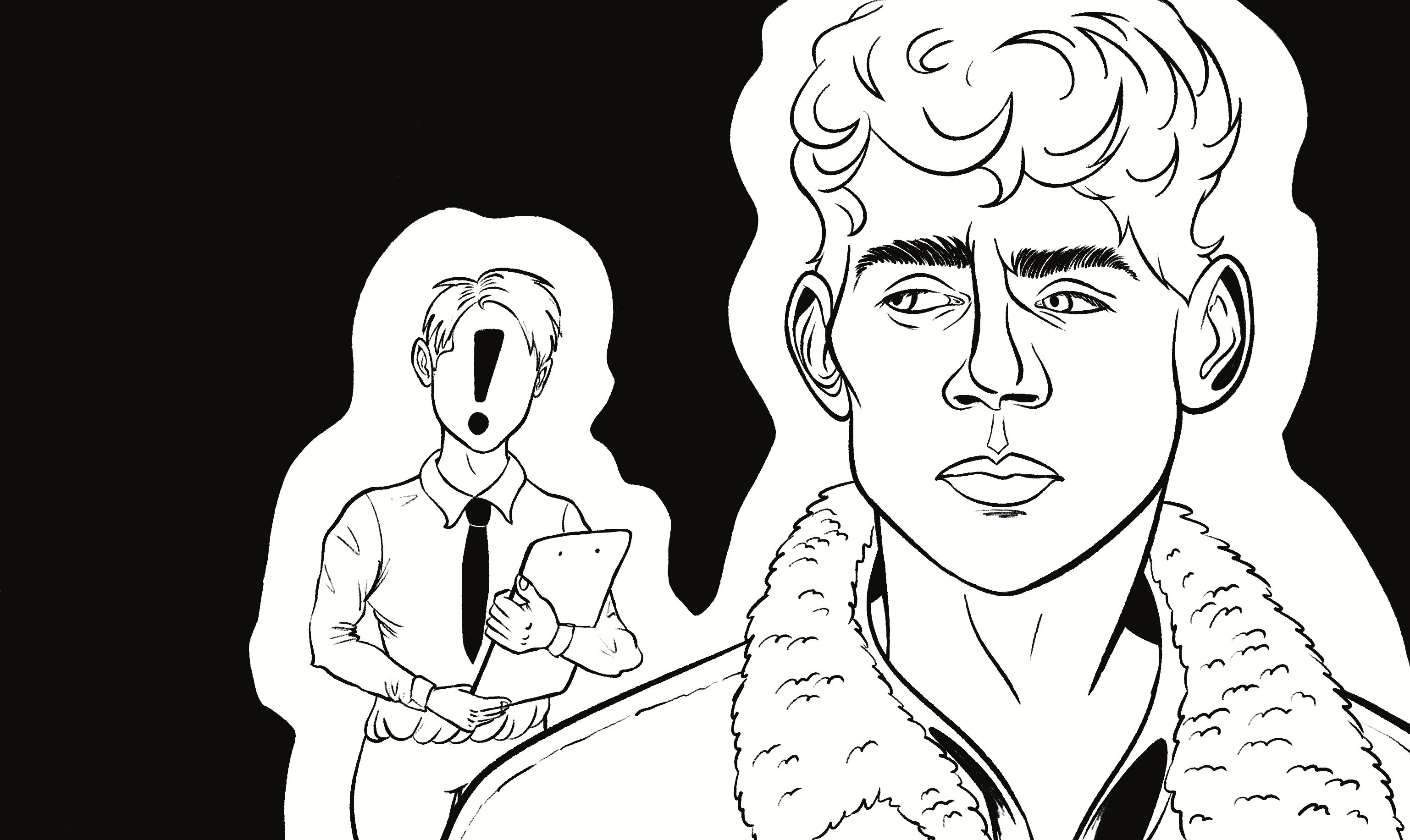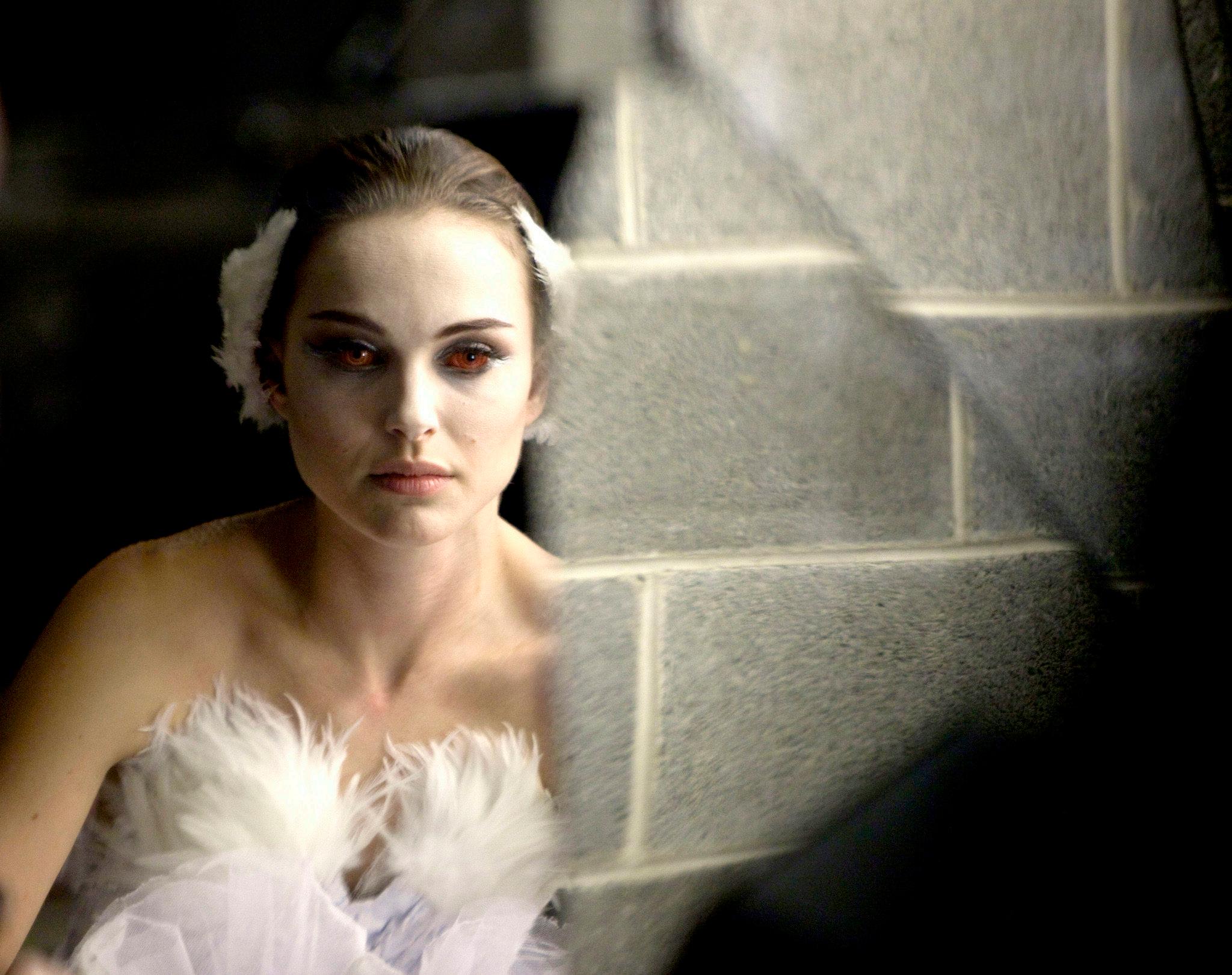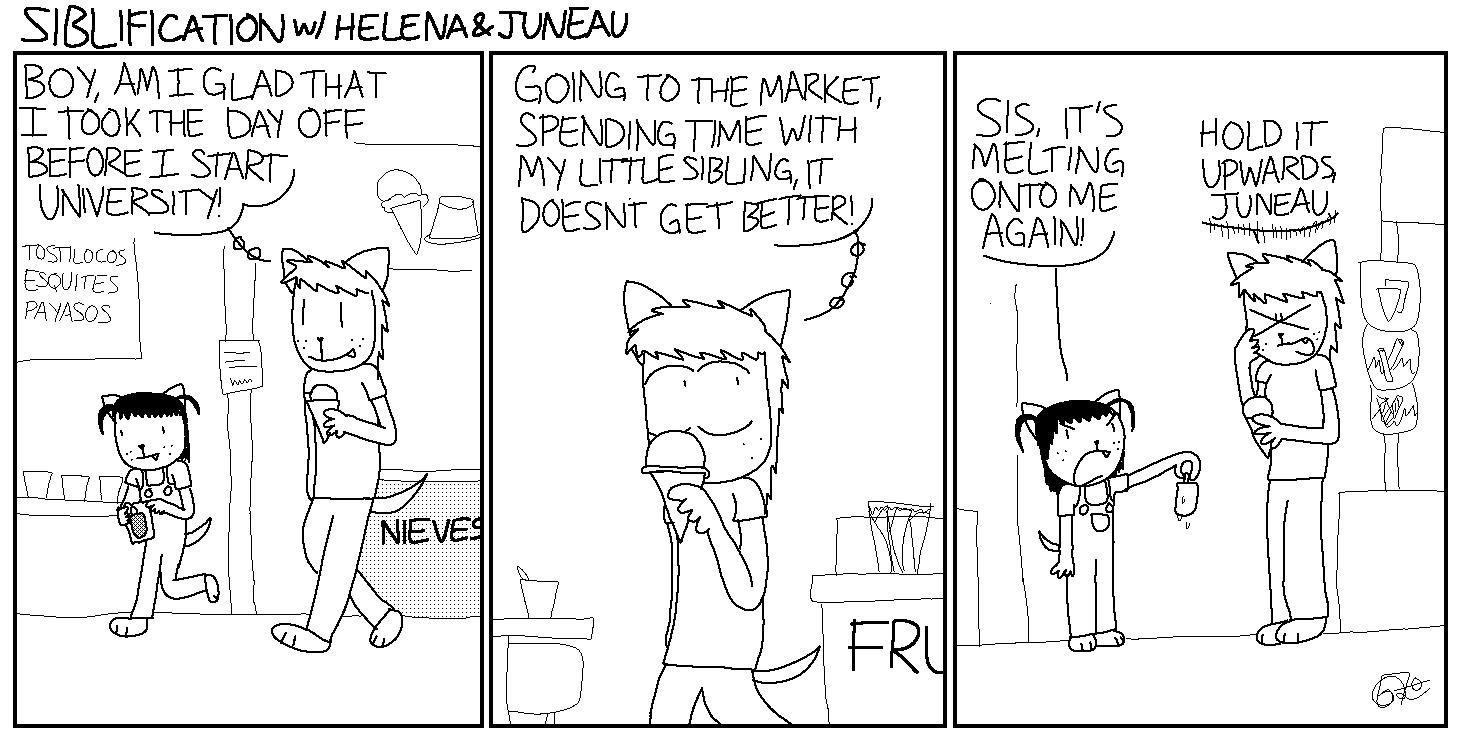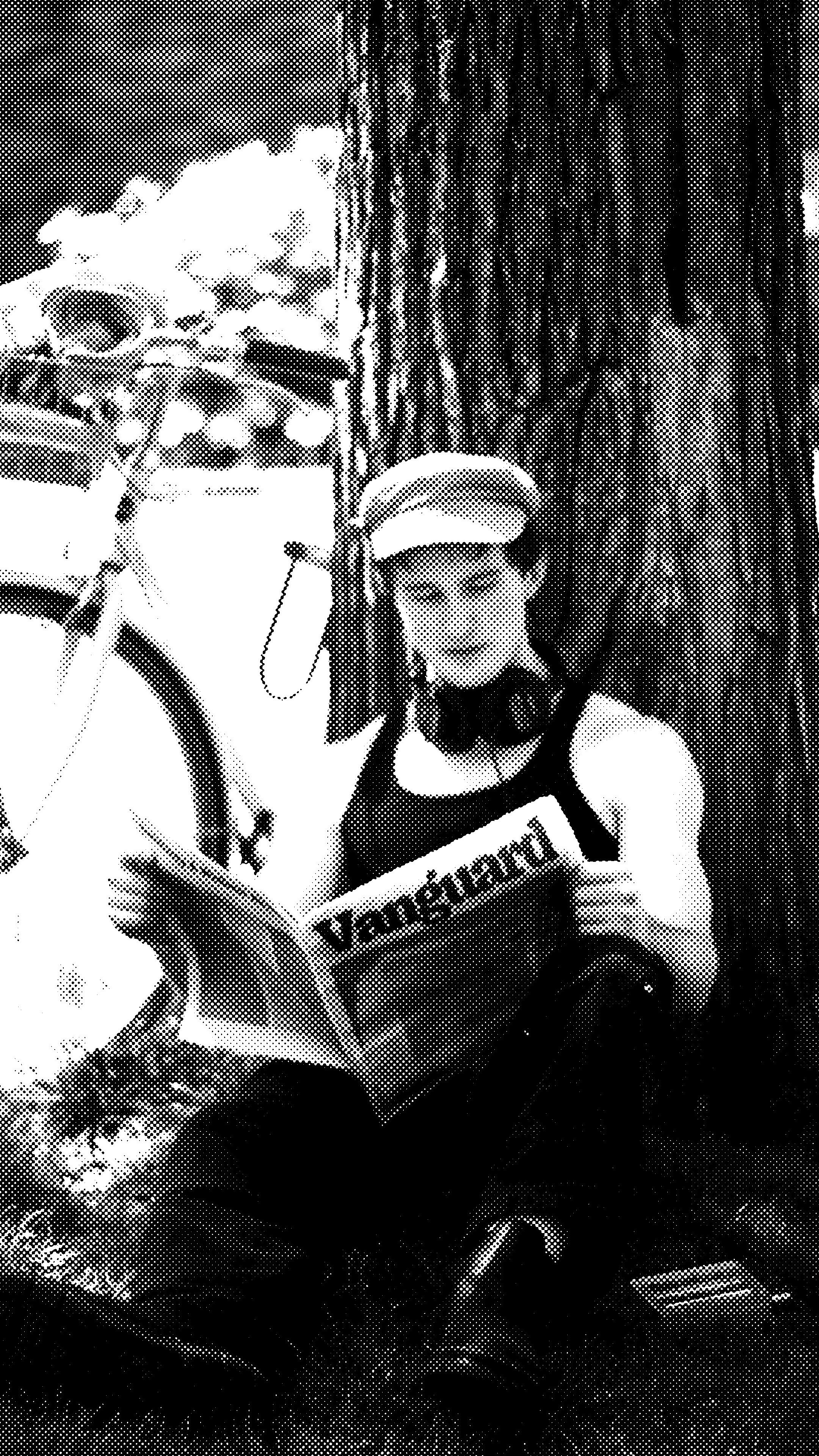


NEWS
Unification Church Proselytizes to Students
ASPSU’s Role Diminishes due to Low Turnout
7 ARTS & CULTURE A Film Analysis of Darren Aronofsky’s Black Swan
Up In the Club: Viking's Horn




NEWS
Unification Church Proselytizes to Students
ASPSU’s Role Diminishes due to Low Turnout
7 ARTS & CULTURE A Film Analysis of Darren Aronofsky’s Black Swan
Up In the Club: Viking's Horn
EDITORIAL
EDITOR IN CHIEF
Noah Carandanis
MANAGING EDITOR
Tasha Sayre
NEWS EDITOR
Isaiah Burns
Nash Bennett
ARTS & CULTURE EDITOR
Adyan Hussein
OPINION EDITOR
Nick Gatlin
MULTIMEDIA EDITOR
Rue Conrad
SOCIAL MEDIA EDITOR
Liam Schmitt
COPY CHIEF
Lilli Rudine
ONLINE EDITOR
Quinn Willett
DISTRIBUTION MANAGER Vacant
CONTRIBUTORS
Samantha Hope Boulgarides
PRODUCTION & DESIGN
CREATIVE DIRECTOR
Briana Cieri
DESIGNERS
Abigail Green
Abby Raymundo
Parker Patnode
Arianna Thomas
Haley Hsu
Devin Singh
Gilberto Z.O.
ADVISING & ACCOUNTING
COORDINATOR OF STUDENT MEDIA
Reaz Mahmood
SALP ACCOUNTANT
Maria Dominguez
STUDENT MEDIA TECH ADVISOR
Rae Fickle
STUDENT MEDIA TECH DEVELOPER
Kaylee Hynes
WEB DESIGNER
Owen Cook
To contact Portland State Vanguard, email editor@psuvanguard.com
MISSION STATEMENT
PSU Vanguard’s mission is to serve the Portland State community with timely, accurate, comprehensive and critical content while upholding high journalistic standards. In the process, we aim to enrich our staff with quality, hands on journalism education and a number of skills highly valued in today’s job market.
ABOUT
Vanguard, established in 1946, is published weekly as an independent student newspaper governed by the PSU Student Media Board. Views and editorial content expressed herein are those of the staff, contributors and readers and do not necessarily represent the PSU student body, faculty, staff or administration. Find us online 24/7 at psuvanguard.com.
Write. Edit. Photograph. Film. Design. Illustrate. Create.
WRITE: News, Arts & Culture, Science & Tech, Sports and Opinion.
PHOTO & FILM: Create engaging content that captivates our audience in modern and creative ways.
EDIT: Ensure precision, clarity and consistency in every article.
DESIGN: Create impactful visual content that empowers, respects, educates, guides and shares truth.
Learn skills, build a professional portfolio and make your own schedule. We are willing to train inexperienced applicants who demonstrate ability and a desire to learn the skills. Contributors are paid for published work.



NASH BENNETT
The Campus Public Safety Office (CPSO) confirms reports of individuals associated with the Family Federation for World Peace and Unification (commonly known as the Unification Church) have been entering university buildings that are closed off to the public and proselytizing students. These individuals have been known to corral students into unofficial “study groups” in which they show students video content breaking down their beliefs and hold discussions. Karl Miller Center is the building they enter most often, but they’ve also been seen in Cramer Hall and the Smith Memorial Student Union.
On March 19, 2025, a post was made to Portland State University’s unofficial Reddit page entitled “Cult on PSU Campus” in which a user recounts their personal experiences with the Unification Church and the three key individuals that
facilitate the study groups.
The poster expressed concerns for a friend of theirs who’s still involved.
“They bombarded him with food and attention to keep him coming back,” was written on the post. “Now, I’m trying to help [him] leave, but he’s afraid of harassment. They have my number as well and I’ve recently blocked all 3 of them and since blocking them, I’ve been avoiding campus out of fear they’ll recognize me.”
The post received many comments from users sharing their own run-ins with these individuals on campus.
“Yeah, I've seen them trying to recruit in the Smith dining area as well,” one user replied. “They try to approach people while they're stuck at the microwave or mid-meal so it's harder for them to walk away.”
The original post gives three first names of alleged church
members who have visited campus: Rung, Kimiko and Steve. Two of the members have been identified as Steve and Kimiko Cox, who both work on behalf of the Collegiate Association for the Research of Principles (CARP) which is an organization within the Unification Church that targets college students. Steve and Kimiko can often be seen carrying clipboards, and walking up and down the Park Blocks. The Cox’s host weekend workshops at their house for students interested in the Unification Church which they call “international dinners.”
PSU Vanguard spoke in person with the student behind the original Reddit post, who would like to remain anonymous, and elaborated upon their experience with the church.
They explained that they were originally invited to join the study groups by Steve Cox, advertising it as a way to “meet other transfer students with culturally diverse backgrounds.” They
were offered food upon arrival to their first meeting in Karl Miller Center, and were pressured to give their phone number and email address.
The students were shown educational videos created by the church and held a discussion on its beliefs. After their first meeting, the student was invited to an international dinner at the Cox home, where the student was driven personally by the church members along with a few other students.
The student recalled the church members specifically asking students to open campus building doors for other non-student members to join the study groups. They also recounted a moment where outside students passing through the building had approached the group and questioned the public discussion of religion—to which Steve Cox allegedly responded in an aggressive tone toward the students. Vanguard could not independently verify this interaction.
During the interview, the student stated that the church members had been encouraging students to start an on campus club for the Unification Church. At the time of publishing, SALP has confirmed with Vanguard that they have not been approached by any students to start a club related to this group.
Many other colleges nationwide do have clubs related to CARP and the larger church organization, most notably at University
of Nevada, Las Vegas—where PSU students have been invited to visit for various workshops.
After viewing the educational videos at the study groups and doing their own research into the organization, the student began to unearth some of the group’s controversial history. They stopped going to the meetings, and since have received messages from all three members pressuring them to come back.
The Unification Church has its roots in South Korea, established by Rev. Sun Myung Moon in 1954. The church’s teachings claim that Rev. Moon received a revelation from Jesus at a young age that it was his job to carry on the mission of Jesus. While their beliefs are based in Christianity, they also promote practices such as mass marriages and traditional familial structures. The religion has a global focus and is practiced in over 100 countries.
In 2022, the church was in the news regarding its connection to the assassination of Japanese Prime Minister Shinzo Abe. The assassin was a former member of the Unification Church, who was disillusioned with the church due to their incessant demands for donations, leading to his family’s bankruptcy.
Following the assassination, the Japanese court ruled to dissolve the Unification Church’s presence in the country.
The outlawing of the church in Japan is the subject of a peti-
tion currently being promoted by its members, stating, “Japan’s religious freedom is under threat” with no elaboration or mention of its ties to the Unification Church. Students on and around Portland State’s campus have been approached by members asking to sign said petition.
Vanguard caught up with a student moments after they had been approached by Kimiko Cox in one such interaction.
“ She asked me to sign her petition and I said I would do it later [but] when I pulled it up on my phone, she continued, ‘Do now, do now, do now.’” The student, who wishes to remain anonymous, said that they felt pressured by the interaction.
“The Campus Public Safety Office is aware of reports that individuals associated with the Unification Church are contacting students on campus,” CPSO said in a statement to Vanguard. “If you experience unwanted contact of any kind that has made you feel uncomfortable, pressured, or harassed while on campus, please contact CPSO. We're here to support you.”
While reports have been made regarding the group, no official action has been taken by CPSO.
This is part of a developing story. If you have been approached by these individuals or have any information regarding the Unification Church, please email us at editor@ psuvanguard.com


A deep dive into the thematic and symbolic themes in Black Swan (2010) directed by Darren Aronofsky.
Black Swan is a 2010 American psychological horror film directed by Darren Aronofsky from a screenplay by Mark Heyman, John McLaughlin and Andres Heinz, and is based on a story written by Heinz.
This film stars Natalie Portman in the lead role, with Vincent Cassel, Mila Kunis, Barbara Hershey and Winona Ryder in supporting roles. The plot of this film revolves around a production of Tchaikovsky’s Swan Lake by the company of New York City Ballet. This production requires one of their ballerinas to play the innocent and fragile White Swan, in which Nina is a perfect fit, as well as the sensual and dark Black Swan, which is embodied by Nina’s new rival, Lily.
Nina gets overwhelmed by a feeling of thick pressure when she finds herself competing for the role—which causes her to lose her grip on reality and begins to spiral into madness.
“Virginal girl, pure and sweet, trapped in the body of a swan,” said Thomas Leroy, the ballet director played by Vincent Cassel. “She desires freedom, but only true love can break the spell. Her wish is nearly granted in the form of a prince, but before he can declare his love, the lustful twin, the Black Swan, tricks and seduces him. Devastated, the White Swan leaps off a cliff killing herself, and in death finds freedom.”
This quote is delivered in the beginning—which sets the tone for the rest of the film.
Nina effortlessly embodies the White Swan—flawless, fragile and pure. This is without her trying. However, the Swan Queen requires the White and Black Swan to be played entirely.
Nina begins breaking out of her cage and as this film goes on, her mental and physical state gets worse, she slowly begins to go more insane while transitioning into the Black Swan.
This film depicts the mental state of a woman going through an intense amount of pressure to be perfect and flawless while she seems to be losing her mind and harming herself little by little.
Near the beginning of the film, a red bloody scratch is being shown on Nina’s back, she brushes it off and isn’t sure how it’s appeared. As she tries to escape from being just the White Swan, she begins opening herself up to fully become the evil seductive Black Swan, which are all features Lily—the second candidate for the Swan Queen roll—can do better.
Nina begins trying to become Lily and projects herself becoming the perfect Black Swan onto her. This is where her hallucinations begin, Nina begins shifting between reality and her false perceptions of herself and Lily.
She begins going through stages of schizophrenia, where everything around her becomes abnormal.
Her descent into a state of madness begins shortly after. She goes through an identity crisis and is imagining herself everywhere all at once—her hallucinations even begin attacking her. She sees her legs bend backward and pulls a feather out of her cut—mentally, she is becoming the Black Swan in a physical sense. Throughout this film, mirrors are constantly being shown. Nina is surrounded by them and they’re being used to symbolize her slowly becoming somebody else entirely—it’s a reflection of her current self undergoing metamorphosis. It also represents
body image and the ongoing theme of perfection. Nina constantly says “I just want to be perfect,” and being in an industry as strict as ballet with body shape, size and weight, the cost of perfection only comes with an incredibly large toll on one’s mental and physical health.
From the beginning of the film, we see Nina’s room—which seems to emulate a child’s room—everything is fluffy and pink and she has stuffed animals surrounding her walls. This is all because of her mother’s obsession with Nina being perfect and plays a significant role in the decline of Nina’s mental and physical state. Nina’s mother retired from being an artist at 28 to raise Nina, and because of this, she projects onto her and yearns for her to be flawless and do everything she couldn’t, as she states “I gave it up to raise you.”
She feels a strong sense of jealousy towards her daughter and treats her as if she’s a child.
Nina is being highly infantilized by her obsessive mother and isn’t able to sensually evolve, she is stuck between being a child and a woman. Her mother forcefully helps her change and cuts her fingernails, insinuating she is a child who can’t do it without her mother’s help.
Her mother seems to have BPD (Bipolar Disorder) and has a switch in her mood almost instantly. She’s either one or the other, one example of this would be when she brought Nina a cake— which Nina didn’t want to eat because of calories—which then leads her mother to snap and move to throw away the entire cake.
Nina’s name also means “little girl” or “young girl” in Spanish— which can express the image her mother portrays onto her. Her mother is seen painting her over and over again and hanging her portraits up—her obsession with Nina becoming the perfect person that she gave up her future to raise only worsens her state of mind.
Lily—Nina’s understudy in the role and the person Nina projects the side she can’t get in touch with—has a major role in the development of Nina and the psychosis Nina goes through.
Lily embodies the White Swan’s evil twin perfectly—seductive, lustful and wild. It’s natural to her to the point that the director even points Nina towards her so she could get a look at what she’s supposed to be like to efficiently play both parts.
She gains an obsession with becoming just as wild as Lily, and that’s when she begins hallucinating that not only is she sexually involved with Lily, but that she ends up killing her.
Her physical awakening was postponed due to her overprotective mother, and although Nina and Lily being involved didn’t actually happen, it opened up a path to a side Nina hasn’t explored. Alongside this, her director’s constant sexual advances towards her, as well as her body dysmorphia and lack of eating, pushed her to a harmful mental state.
Colors in this film are very prominent and symbolize the stages Nina is going through to become the Black Swan. As the film begins—and for about 70% of it—we see mostly lighter shades being depicted, from her clothing to her surroundings.
Then, we start to see more neutrals, and Nina’s style slowly starts shifting into darker shades. At the end of the film we see darker colors more prominently. Draped in black, Nina fully embodies the essence of the Black Swan.
Monochrome colors are constantly surrounding Nina throughout the film, from the walls in the dance hall, to the subtle things around her—this can be interpreted in a few ways. One is the contrast between the White and Black Swan, and how Nina is constantly reminded she needs to seamlessly embody both. It is also interpreted as the way Nina views the world, black and white—simply like a child.
Once the final ballet takes place and Nina goes to perform the White Swan, she messes up and can’t do it. She isn’t the innocent fragile girl she was at first—which makes embodying the White Swan impossible for her. She has broken out of her cage and there isn’t any way for her to return. She then continues and embodies the Black Swan flawlessly, she becomes the role. It’s perfect.
Nina is the Black Swan, with no sense of identity, she takes on that role and embodies it to the fullest extent. After she hallucinates that she has stabbed Lily and realizes she’s only stabbed herself, she doesn’t seem to be in pain—it’s represented as the opposite.
Comparing Nina’s final ballet as the Black Swan to her first in the film, two completely different characters are being depicted. After Nina’s final jump, she falls onto the mattress and it switches into a white screen—the white screen symbolizes the light at the end of the tunnel, the final destination and the White Swan’s suicide—just as the ballet director stated.
“It was perfect.” A perfect swan.

Esteban and Taiwo representing ASPSU.
RILEY SHARPS
Portland State University students are offered the opportunity to be participants in the decision-making process regarding their own tuition, fees and administrative decisions through the student government.
Despite this, student participation is still less than one out of every ten.
Associated Students of Portland State University (ASPSU) functions as the student government on the Park Blocks. According to data from ASPSU Advisor Madeline Frisk, the percentage of students who have voted in the elections from the years 1996 to 2024 has averaged about 8 percent per year.
Compared to colleges like Oregon State University and the University of Oregon, this is about half of their voting population. When asked about what factors may be causing this type of output, Frisk remarked about the importance of increasing the combination of both in-person and online ways of engagement.
“It’s figuring out the demographic data of the students who already participate and then filling in the gaps through specific resource centers,” Frisk said.
Those who are running also have the opportunity to generate an increased voter turnout by providing information to the student body about what they work for, promoting past ASPSU accomplishments and creating a platform for people to get behind.
“It’s a combination,” Frisk said. “Both… ASPSU and what we can do, but also candidates and how they are driving engagement and participation.”
Incumbent ASPSU President Brady Roland also stressed the significance for candidates to elevate themselves in front of as many people as they can.
“It’s basically just about trying to promote ourselves as much as possible and in turn get out the vote for the elections,” Roland said.
Increased turnout could have tangible impacts on ASPSU’s influence, according to Roland.
“ASPSU is as powerful as the students make it to be,” Roland said.
According to the Student Body President, as more people vote and engage with the student government, the more the organization is taken seriously in front of decision-making individuals and committees.
Due to middling student engagement, some school executives have expressed the opinion that ASPSU is not a true representation of the student body, raising questions about the validity of the role the organization plays within student affairs.
Roland has had personal experience with this kind of sentiment.
“I sat on this committee, and, I kid you not, at least ten times one of the members of this committee continuously brought up the fact that we have low voter turnout in our elections, and so I’m not a real representative,” Roland said. “Those kind[s] of people undermine us.”
It isn’t all negative news, however—2025 marks the largest number of candidates who’ve participated in ASPSU elections since 2015 and a 57% increase from 2024. The percentage of voting students, while still relatively low, has also increased every year since the end of the pandemic.
This has the possibility to mark new beginnings for ASPSU, according to the current Chair of the Elections Committee and member of the Judicial Review Board, Jack Damm.
“I think we are very, very passionate right now about ASPSU in a way…” Damm said. “That past candidates and past presidencies have not done as much.”
According to Damm, there has been an increased feeling of hope within the ASPSU community.
“I think if there’s a more unified voice coming from the students, it would be harder for administration to ignore,” Damm said.


Brand-new sketch comedy group on campus with a goal to provide laughter despite it all
NASH BENNETT
Viking’s Horn is a newly established sketch comedy group at Portland State. The group is producing sketch comedy videos that will be shared primarily on YouTube, but will also be available across various social media platforms.
Their meetings start with members pitching sketch ideas and workshopping them as a group. Once an idea is decided on, they’ll begin production on the sketch which will ultimately lead to an online release.
The group was started by Tyson Smith, who first got the idea after noticing a deficit of comedy culture at PSU. He specifically cites the sketch comedy show, Portlandia, as a touchstone for Portland’s comedic presence and that the city itself is a “funny place”.
Smith elaborated on the importance of comedy in an interview with PSU Vanguard: “I think now more than ever people need to laugh.”
Smith believes things like sketch comedy can bring people together and establish community.
Being such a new group, they’re definitely still in their development stage and are looking for students who are passionate about comedy to help build out this burgeoning club.
Viking’s Horn had their first official meeting on Thursday, April 18, and will thereafter meet regularly on Tuesdays and Thursdays.
The group is actively looking for new members, and any students interested can email tysons@pdx.edu to get the process started.
Dear reader,
Just over two years ago, in February 2023, I wrote in these pages urging the Board of Trustees to select Ann Cudd to be University President. The selection process at that point had come down to Cudd and one other finalist, Kathy Johnson. I wrote that, while both candidates would likely be a good fit for the job, I hoped Cudd’s background as a professor of Philosophy and her concern with the liberal arts would safeguard these important programs for the foreseeable future.
Whoops.
It is fair to say things have not gone well since then. In December, 17 non-tenure track faculty were given termination notices, a decision Cudd said was needed for “necessary investments in key programs,” and to “ensure the ongoing success of our institution,” continuing by adding how “closing a budget gap like this requires difficult decisions.”
In a cruel twist of irony, the Philosophy department took much of the brunt of this fiscal assault, as the department will be losing three faculty members, according to PSU Vanguard reporting “This opaquely-reasoned decision,” the department wrote in a letter to the Dean’s office, “jeopardizes the Department of Philosophy’s long-term viability.”
It is bizarre that someone with as much of a background in philosophy as Cudd would fail to see the value of the Philosophy program, or subject it to cuts so profound they endanger the program’s future. (There is currently a Change.org petition to reinstate these professors — go sign it!)
In 2023, I wrote, “We need a president who will put their weight behind the preservation of important programs, especially those in the liberal arts and humanities, which have been threatened by declining enrollment nationwide.”
I stand by that statement one hundred percent. Unfortunately, as is now clear, Ann Cudd is not that president.
It’s not only layoffs—during the library occupation last year, in opposition to the wishes of much of the campus community, Cudd opted to call in the Portland Police Bureau, “citing the hazards of the fire systems being disabled while pro-

testers were in the library,” according to Vanguard.
Following the Spring 2024 campus protests, Cudd said at the June 3 Faculty Senat e meeting, “Words, slogans and epithets, while protected by the First Amendment, will not bring about a ceasefire in Gaza, but they can poison our community.”
It’s hard to know where to start with that—for a university president to say, somewhat dismissively, that students’ words are constitutionally protected but don’t really do anything is, well, disheartening.
I previously wrote that Cudd’s record showed a “willingness to advocate for the mission of higher education itself—something that we cannot take for granted in a climate dominated by utilitarian considerations of dollars and cents.” Hahahahahahahahahahahahahahahah ahahahahahahahaha.
In order to distract from the growing pit in my stomach over just how wrong it’s possible for a person to be, I’d like to quote from one of Cudd’s own writings, her 2019 article “Harassment, Bias, and the Evolving Politics of Free Speech on Campus.”
“We in the university community should see the problem of free speech on campus as one of developing the kind of intellectual community we want and need to make society better in the ways in which higher education is uniquely suited…” Cudd states in her article.
“Administrators and faculty must always keep important principles and aspects of the mission of education in view. When begun by students, however, university faculty and administrators can and should support progressive change in other ways that challenge the entrenched understandings of academic freedom and tradition in order to bring about social transformation and serve the evolving social missions of universities.”
A true philosopher, Cudd reminds us that the meanings of words like “progressive,” “social transformation” and “social missions” are open to interpretation. Let Knowledge Serve the City—unless it costs money, of course, or, god forbid, makes the administration a tiny bit uncomfortable.
SANDRA STEVENS
As more countries advise their citizens to think twice before traveling to the United States, it won’t be long before American businesses and workers feel the economic impact of isolationism.
In 2019, the governments of Uruguay, Japan and Venezuela issued travel warnings for the U.S. due to mass shootings in California, Texas and Ohio which killed almost three dozen people.
While the Uruguayan government has lifted its official travel warnings to the U. S. from six years ago, the South American country still cautions its citizens to be wary of America’s violent crime rates and extreme racism.
Violence, racism, rollbacks on civil rights, book bans, soaring inflation, antiintellectualism and punitive tariffs are tarnishing this country’s image the world over. Why travel to the United States when you can plan your next trip to beautiful, immigration-friendly Uruguay? Americans need to know their ranking in the global index of democracies.
Uruguay recently achieved status as a “full democracy”: Uruguay reached 14th place globally, whereas the United States is now considered a “flawed democracy” and was ranked at 36th place on the Democracy Matrix scale in 2020. According to the International Gay and Lesbian Travel Association, Uruguay is one of the safest and most welcoming destinations for LGBTQ+ travelers
Go in late September to experience the Montevideo Pride parade, which attracts more than 30 thousand people a year! Germany, Canada, and the U. K. are now advising their travelers against visiting the United States. So much for having allies! And it won’t just be hotels and restaurants burdened by a lack of revenue—whole cottage industries have evolved around the tourism and hospitality industries.
Spas, for example, offer high-end services inside luxury hotels, which attract wellheeled tourists. Massage therapists, hair stylists, poolside attendants, baristas, bakers, bartenders, cashiers, caterers, delivery drivers and more will lose their jobs. The tourism industry has always been unpredictable, but thanks to President Donald Trump, it’s more precarious than it has ever been—traveling to America is now presented as a dangerous and hostile endeavor.
Isolationism, bigger and better tax breaks for billionaires and the unraveling of social safety nets such as Medicare, Medicaid and food stamps could easily erode the middle class while turning America into a country of polarized economic extremes—a minority determined to protect self-interests and exponential wealth, don’t-give-a-damn-people living in gated communities, while the majority is subsumed by poverty and a daily struggle just to survive.

The recent arrests and detentions of Lennon Tyler, a U.S. citizen, Lucas Sielaff, Tyler’s German fiancé, and German tourist Jessica Brösche are a national disgrace and a harbinger of more abuses of power to come from the United States Border Patrol. Sielaff was only 22 days into his 90day tourist permit when he and Tyler were detained at the U.S. border crossing after enjoying a short stay in Tijuana, Mexico. Tyler was handcuffed and fettered to a bench. Her dog, recovering from surgery, was left alone in a car for hours. Sielaff was sent to a grim detention center where he was held without cause for 16 days. Sielaff was allowed to leave the center only after Tyler agreed to buy her fiancé a one-way ticket back to Germany for $2,744
Another German tourist who will likely never return to the U.S. is Jessica Brösche, a German tattoo artist. Brösche was entering the U.S. with an American friend—the two attempted to cross the U.S. Border via San Diego. Brösche’s crime? The U.S. Immigration and Customs Enforcement (ICE) accused the artist of entering the U.S. on a previous occasion and claimed she worked while traveling with the Electronic System for Travel Authorization (ESTA) program, which only allows foreigners to visit the States, not work here.
Did selling some tattoos make Brösche a threat to our national security? Did she really need to be retained at the Otay Mesa Detention Center for over a month, including a week in solitary confinement where she pounded on the walls until her knuckles were bloodied? The company that owns the detention center denies the existence of solitary confinement at its facility.
Otay Mesa is owned by CoreCivic Inc, the world’s largest private prison corporation. In 2022, CoreCivic Inc’s CEO Damon Hininger received a salary of $5,159,741, with $2,319,591 paid to Hininger in cash. Apparently, incarcerating anybody and everybody can lead to a lucrative career.
Trump likes to fashion himself as more of a businessman than a politician but his true calling is for bombastic self-promotion. Why do the President’s followers see him as such an astute icon of no-nonsense economics when so many of the man’s businesses have failed, including Trump University and the outlandish Trump Ice bottled water enterprise?
Now, Trump is running the country like he ran his businesses into the soil, one greedy ill-advised swipe at a time. Pushing away our allies, threatening any agency that doesn’t directly benefit the wealthy, even kicking aside the welcome mat to tourists who can fuel our economy. Electing Donald Trump was a bad idea on so many levels, but on a fundamental level, he really is, and always has been, a bad businessman. America cannot afford Donald Trump.



BY NOAH CARANDANIS
Café en Français
FMH Room 334
May 1, 9 a.m.
Free for students
A one hour conversation fully in French that welcomes all speaking levels.
5th Avenue Cinema presents: Xala
5th Avenue Cinema
April 25, 6 p.m. and 8:30 p.m.
April 26, 6 p.m. and 8:30 p.m.
April 27, 3 p.m.
Free for students
Enjoy a film this weekend brought to you by PSU Students.
ASPSU President/ Vice President debates
Parkway North, SMSU
April 25, 4 p.m.
Free for students
Learn more about this year’s ASPSU candidates.
Coffee and Cookies
Relaxation Social
SMSU 296/298
April 29, 12 p.m.
Free for students
The Jewish Student Union hosts a space to de-stress from midterms and socialize.
Résumés and Cover Letters
Workshop Online
April 30, 1 p.m.
Free for students
Learn how to write résumés and cover letters at this workshop session.
Legally Fun! A Night with Elle Woods
5th Avenue Cinema
April 25, 4:30 p.m.
Free for students
Enjoy light snacks and refreshments at this “Legally Blonde” movie night.
PSU Basic Needs Hub
SMSU Suite 435
Mon–Fri, 9 a.m. – 5 p.m.
Free for students
Helps students access resources such as funds, food, housing, employment, childcare and health support.
PSU Food Pantry
1704 SW Broadway (temporary location)
Tues–Thur, 12 – 4 p.m.
Free for students
Access to free groceries in a welcoming, equitable, trauma-informed way. Must be enrolled in at least one credit for Summer or Fall.
SMART Recovery Meetings
University Center Building 340 E Times vary Free
In peer recovery, students with shared experiences connect to reduce stigma and build a campus recovery community.
Cinema Therapy for Grief and Loss
SHAC Group Room
Mondays 2 – 3:30 p.m.
Free
Identifies grief through film in a group setting that builds community and relationships.
Community Technology Space
730 SW 10th Ave. Suite 111 (entrance on SW 9th Ave.)
Mon–Fri, 10 a.m. – 6 p.m.
Free
Multnomah County official cooling center with access to free technology, internet, limited books and events.
Oregon Energy Fund
Varying Locations
Mon–Fri, hours vary Free
Provides energy bill assistance to low-income Oregonians to support household stability.
SHAC Mind Spa
UCB Suite 310
Mon–Fri (by appointment)
Free for students
Solo space to experience biofeedback, light therapy, meditation, massages, relaxation and more. Must be enrolled in at least five credits for Summer or Fall.
Morrow Room, Stott 138
Weds, 4 p.m.
Free for student athletes
Weekly meeting designed for PSU athletes to have a space to build community and develop healthy coping strategies.
Listen on Spotify
Available 24/7
Free
PSU-produced podcast about being mindful while outside, practicing gratitude, finding joy and being in the moment.
SHAC Nap Rooms
UBC 340
Available first come first serve
Free for PSU students
Provides a space for PSU Students to nap in a safe and comfortable environment.
Outdoor Workshop Wednesdays
Watch on Youtube
Available 24/7
Free
PSU Campus Recreation Center staff videos about topics ranging from Leave No Trace and plant identification to hiking spots and land acknowledgments.
BORP Online Fitness Studio
Watch on Zoom
Mon–Sat, hours vary
Free
Bay Area Outreach and Recreation Program’s (BORP) virtual exercise classes for people with physical disabilities.
